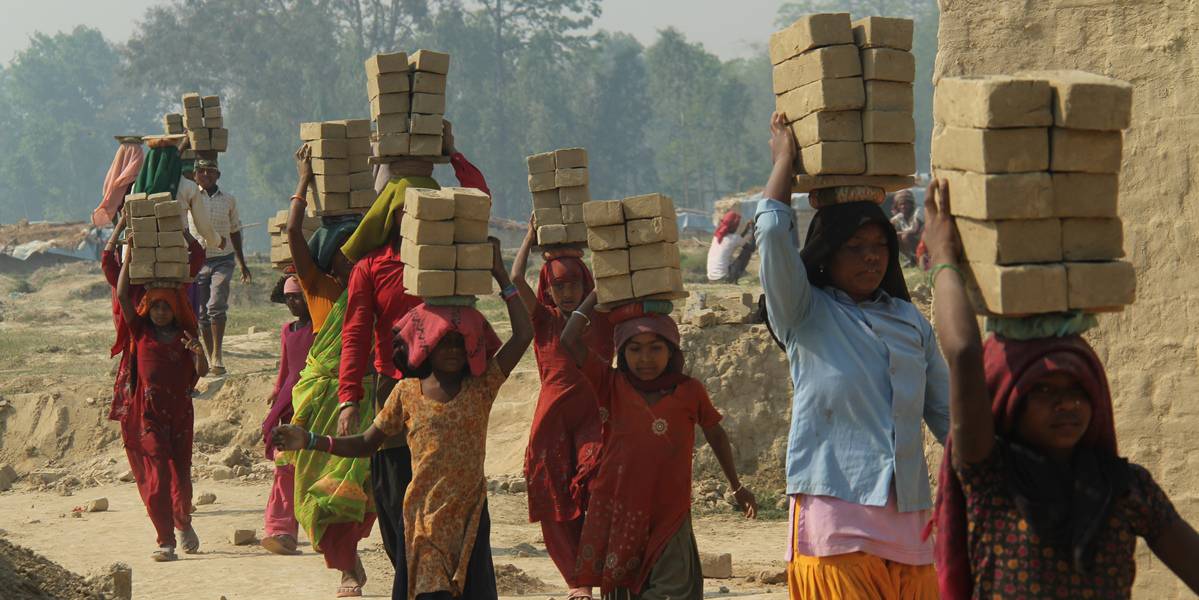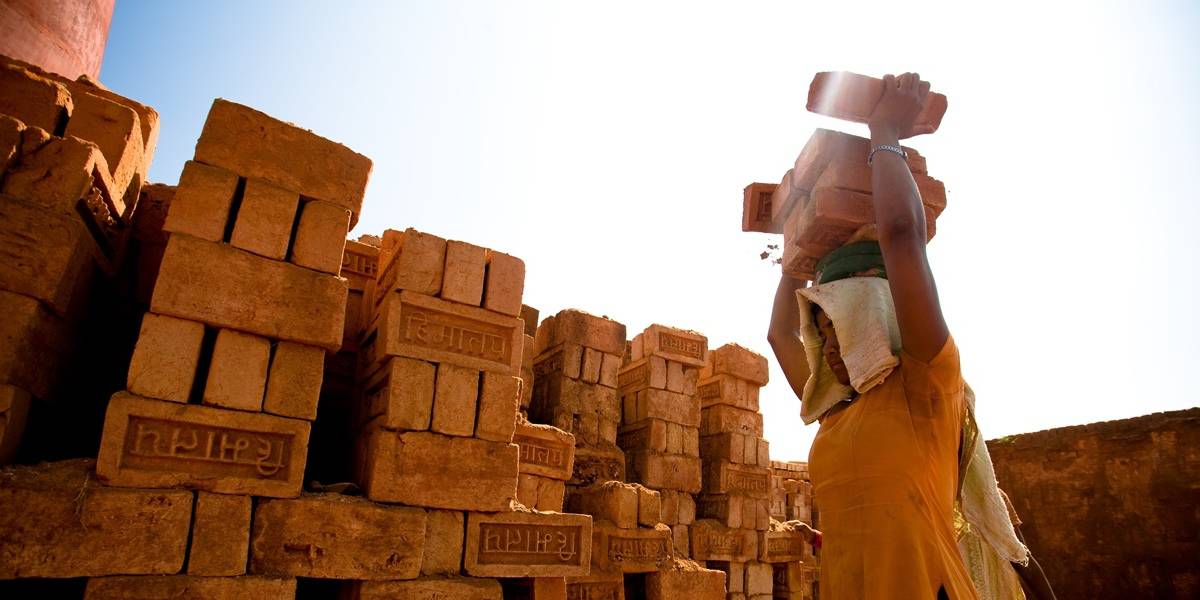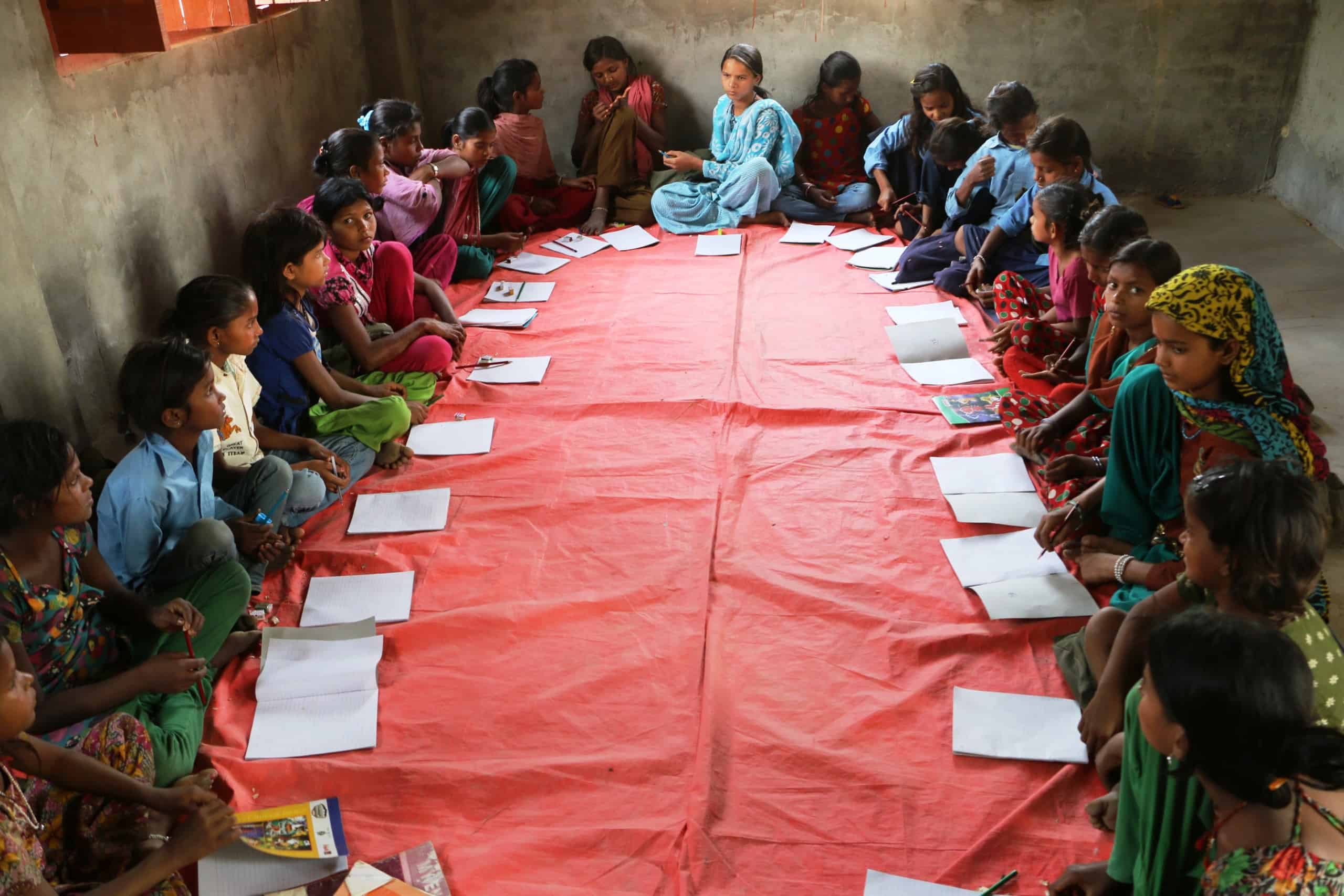From 2018-2022, the Sakriya project worked to build the capacity of Nepalese civil society to more effectively detect and combat forced child labor and other labor abuses in Nepal's brick, embroidery, and carpet weaving sectors. Sakriya (which means "active" in Nepali) leveraged partnerships across Nepal's child protection networks to facilitate access to services for survivors of labor abuses and to reduce the risk that adults and children will be forced into harmful work in these sectors.
The Problem
Nepal hosts a large manufacturing industry, especially for the production of bricks, embroidery, and carpet weaving. Children and adults in these industries often work in harmful conditions. Civil society organizations play a critical role in working with and supporting local government to implement relevant laws and policies to eliminate these labor abuses. In Nepal, many people lack awareness about the hazards of child labor, and civil society organizations often have little ability to carry out effective advocacy on the issue. To address this growing problem more effectively, these organizations need support.
Our Strategy
The Sakriya project supported Nepalese civil society to better identify and document information on the nature and scope of child labor and/or forced labor in the brick, embroidery, and carpet weaving sectors. The project is also working to improve the capacity of these networks to raise awareness of these problems; and, improve their capacity to lead initiatives to address child labor and/or forced labor and violations of acceptable conditions of work.
Results
To date the project has established a core leadership cadre of local and national organizations who bring diverse technical expertise and influence. This team in turn is collaborating with a network of 15 regional NGOs who have a deep reach into affected communities. Each local NGO is using their new skills to organize sub-networks of smaller community-based organizations who bring local knowledge, language, and relationships with critical groups, including community members, local authorities, and business owners.
The lead organizations have collected data about child labor and forced labor in the brick, embroidery, and carpet weaving sectors, and are using this information to help Nepalese civil society advocate more effectively for programs and policies to prevent exploitation and protect workers. With this capacity building support, this network of civil society organizations was better prepared to provide effective direct support during the COVID-19 pandemic to 13,000 vulnerable children and families engaged in or at risk of engaging in hazardous work.
Additional results include:
- Built capacity of local governments and supported them to establish 21 local Child Rights Committees and 293 Ward Child Rights Committees where many did not exist before the project. These committees, which serve 406,200 children, spearhead strategies and actions to address child labor.
- Supported 140 ward Child Rights Committees to form a grievance committee, appoint a focal person, and develop investigation procedures for handling grievances and referrals related to children's rights and child protection.
- Led to two NGOs expanding their child labor identification work into four new municipalities beyond the targeted 45 municipalities. This expansion means the committees will now be able to connect more at-risk children to needed services.
Funding is provided by the United States Department of Labor under cooperative agreement number IL-32527-18-75-K. One hundred percentage of the total costs of the project is financed with federal funds, for a total of 2.85 million dollars.





